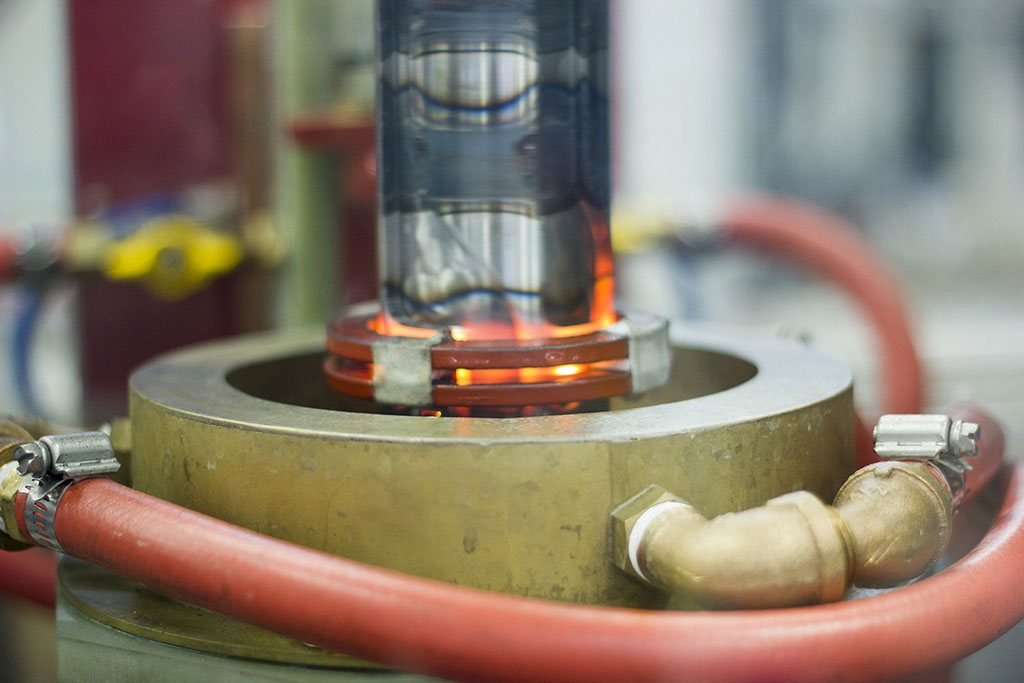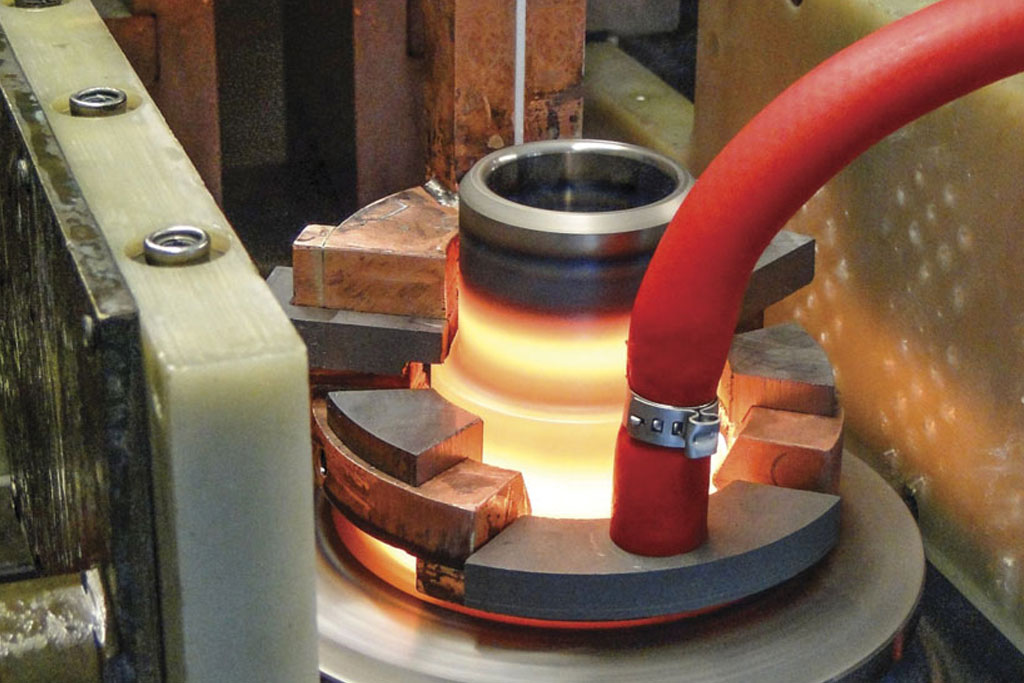What is the Hardening Process?
The hardening process is used to strengthen materials that will be subjected to wear and tear, such as metals used in machinery or tools. It involves heating the material to a high temperature, typically above its critical temperature, to make it more malleable. The material is then rapidly cooled, typically by quenching it in a liquid or gas, which causes the surface layer to harden. The hardening process is an important method used to strengthen materials and improve their durability. The process involves heating a material to a specific temperature and then rapidly cooling it to create a hardened surface layer. Induction heaters are a powerful tool in this process, providing precise and consistent heating for optimal hardening results.
Why is the Hardening Process Important in Industries?
The hardening process is a crucial step in enhancing the strength and durability of materials. This process involves heating the material to a high temperature and then cooling it down rapidly, which alters its molecular structure and makes it stronger. When materials are hardened, they become more resistant to wear and tear, which means they can withstand heavy use without breaking down or wearing out quickly. This is especially important in industries that rely on strong and durable materials, such as construction, manufacturing, and transportation.
Hardened materials are also more resistant to deformation, which means they can maintain their shape even under extreme pressure or stress. This is essential in applications where the material must withstand heavy loads or impacts, such as in machinery or structural components. Overall, the hardening process is vital for improving the performance and longevity of materials. By making materials stronger and more resistant to wear and tear, hardening ensures that they can withstand the demands of various industries and applications, ultimately leading to increased efficiency and cost-effectiveness.
How Does Induction Heating Help in the Hardening Process?
Induction heating is a technology that uses electromagnetic induction to generate heat in a material. This technology has become an essential tool in the hardening process of materials due to its precise and consistent heating capabilities. One significant advantage of induction heating is that it provides direct heating to the material without the need for any contact with the heating element. This method of heating is more efficient and precise compared to other conventional heating methods. There is also less risk of overheating or under heating the material, which can be crucial in ensuring the quality and integrity of the hardened material.
Induction heating also has a faster heating time than other traditional methods. This is because the heating process is localized to the surface layer of the material, rather than heating the entire bulk material. This reduces the time required for the heating process, making it a valuable tool in industries where time is critical, such as in manufacturing and production. Another advantage of induction heating is that it can be easily controlled and adjusted to meet specific requirements. This makes it a versatile tool for hardening various materials of different sizes and shapes.
Generally, the use of induction heating in the hardening process provides a more precise, efficient, and faster method of heating, leading to improved quality and productivity in various industries.
Advantages of Using an Induction Heater
An induction heater is a type of heating system that uses electromagnetic induction to generate heat. It is an efficient and precise way to heat metals for the hardening process. Here are some ways that an induction heater can help with the hardening process:
- Rapid Heating: Induction heaters can rapidly heat metals to the desired temperature, which is necessary for the hardening process. The faster the metal is heated, the less time it has to oxidize, which can weaken it.
- Precise Temperature Control: Induction heaters can precisely control the temperature of the metal being heated, which is critical for the hardening process. Different metals require different temperatures for hardening, and an induction heater can provide precise temperature control within a range of just a few degrees.
- Uniform Heating: Induction heaters can provide uniform heating across the entire surface of the metal being heated. This is important for the hardening process; as uneven heating can lead to inconsistent hardening results.
Reduced Distortion: Induction heaters can reduce distortion in the metal being heated. This is important for the hardening process, as distortion can weaken the metal and reduce its durability.
What Are Some Applications of the Hardening Process?
The hardening process is used in a wide range of industries, including manufacturing, construction, and automotive. Some common applications include:
- Hardening the surface of gears and bearings to improve their durability and reduce wear and tear.
- Hardening the surface of cutting tools, such as drill bits and saw blades, to improve their cutting ability and reduce the need for frequent replacements.
- Hardening the surface of machine parts, such as shafts and pistons, to improve their resistance to deformation and extend their lifespan.
- Hardening of metal components used in the aerospace industry to improve their strength and durability in high-stress environments.
- Hardening of firearms components to improve their durability and resistance to wear and tear.
- Hardening of blades and knives used in the food industry to improve their cutting ability and reduce the risk of contamination.
- Hardening of components used in the oil and gas industry, such as drill bits and valves, to improve their resistance to wear and corrosion.
- Hardening of components used in the construction industry, such as anchor bolts and rebar, to improve their resistance to bending and cracking.
- Hardening of molds used in the manufacturing of plastic products to improve their lifespan and reduce the need for frequent replacements.
- Hardening of components used in the mining industry, such as drill bits and shovels, to improve their wear resistance and reduce downtime for maintenance.
Conclusion
In conclusion, GM Industries has established itself as a major manufacturer and supplier of industrial induction heaters for hardening applications. With a wide range of products designed to meet the needs of various industries, GM Industries has built a reputation for delivering high-quality, reliable induction heating solutions. Our commitment to innovation and customer satisfaction has enabled us to stay at the forefront of the industry, providing cutting-edge technology and unparalleled service to clients around the world. Whether it’s hardening gears, bearings, cutting tools, or machine parts, GM Industries has the expertise and experience to provide the right induction heating solution for any application.

